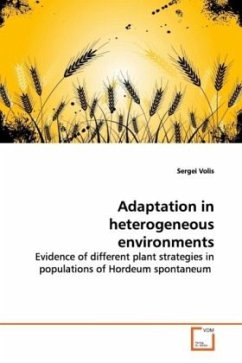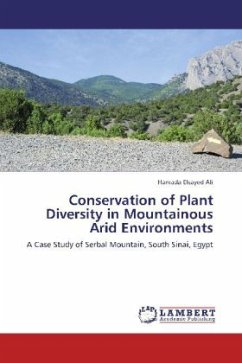A subject of this work is adaptation in
heterogeneous environments analyzed by applying two
approaches, generalist-specialist and plant strategy
theory, and using several populations of a single
species, wild barley (Hordeum spontaneum Koch). Four
environments were specifically chosen to represent a
gradient of environmental productivity (annual
rainfall) and unpredictability (interannual
variation in rainfall). Plants originating in the
four distinct environments were tested for local
adaptation, and analyzed for the possible mechanisms
by which the adaptation was achieved. I found that
the specialist-generalist approach was not efficient
in analyzing selection process at large-scale
(regional-scale) heterogeneity. On the other hand,
the life history traits, phenotypic plasticity and
competitive ability of plants originating in the
four studied environments were in partial
correspondence with those predicted by Grime s C-S-R
model. A new plant strategy scheme that is based on
the rectangular ordination of environments and has
two ordination axes: adversity (stress) and
environmental unpredictability, is proposed.
heterogeneous environments analyzed by applying two
approaches, generalist-specialist and plant strategy
theory, and using several populations of a single
species, wild barley (Hordeum spontaneum Koch). Four
environments were specifically chosen to represent a
gradient of environmental productivity (annual
rainfall) and unpredictability (interannual
variation in rainfall). Plants originating in the
four distinct environments were tested for local
adaptation, and analyzed for the possible mechanisms
by which the adaptation was achieved. I found that
the specialist-generalist approach was not efficient
in analyzing selection process at large-scale
(regional-scale) heterogeneity. On the other hand,
the life history traits, phenotypic plasticity and
competitive ability of plants originating in the
four studied environments were in partial
correspondence with those predicted by Grime s C-S-R
model. A new plant strategy scheme that is based on
the rectangular ordination of environments and has
two ordination axes: adversity (stress) and
environmental unpredictability, is proposed.








